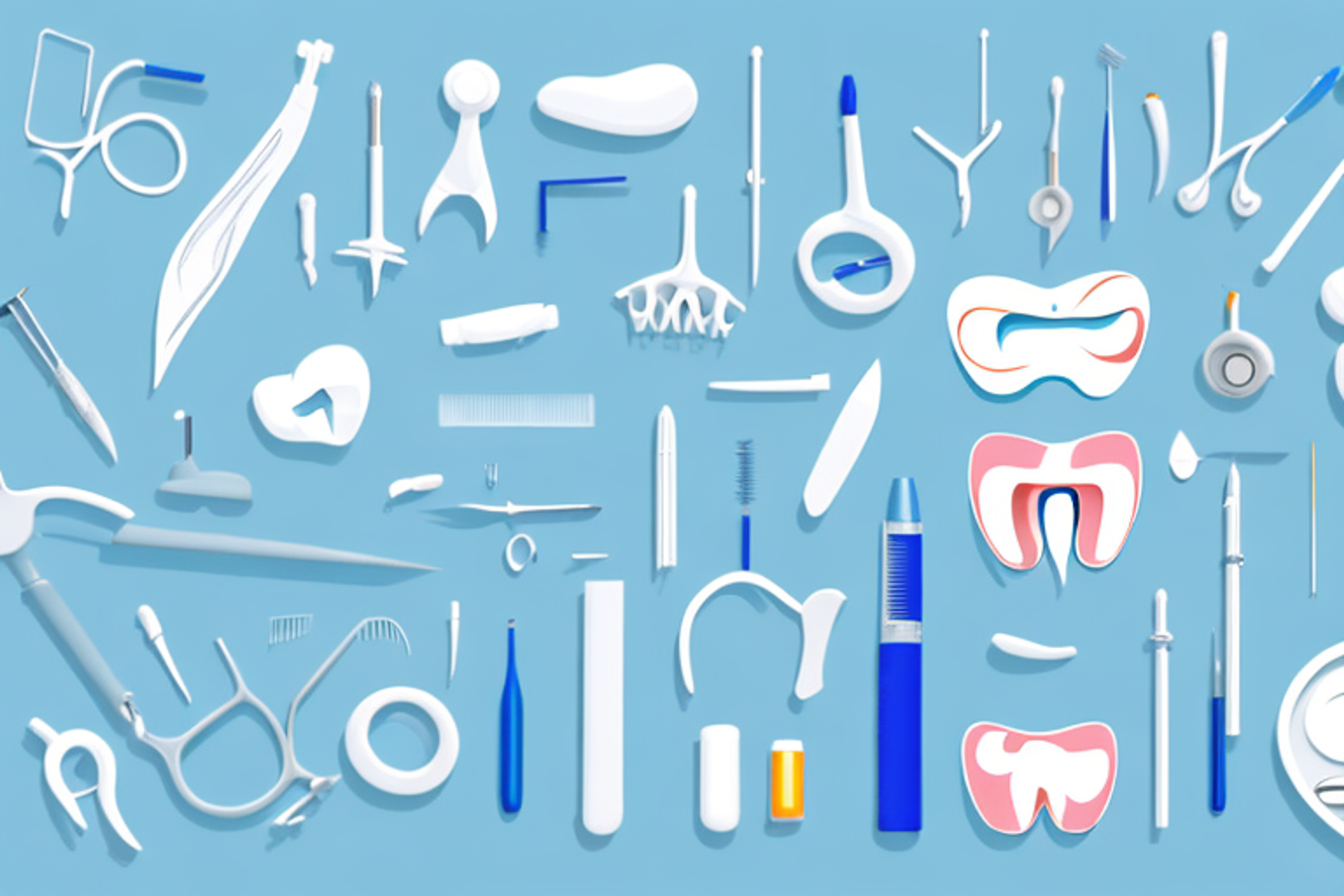Dental Assistant School: Program & Application Overview
Looking to embark on a career as a dental assistant? This comprehensive article provides an insightful overview of dental assistant schools, programs, and the application process.
Posted April 10, 2025

Table of Contents
Becoming a dental assistant can be a rewarding career choice for those interested in the field of dentistry. If you are considering a career as a dental assistant, it is important to understand the program requirements and application process for dental assistant schools. This article will provide an overview of these aspects, including the role of a dental assistant, program options and coursework details, application prerequisites, financing your education, and career prospects after completing a dental assistant program.
An Overview of the Role of a Dental Assistant
As a dental assistant, you will play a crucial role in supporting dentists and ensuring the smooth operation of dental clinics or offices. Your responsibilities will vary from clinical tasks, such as preparing patients for treatments and sterilizing equipment, to administrative duties, such as managing patient records and scheduling appointments.
One of the key responsibilities of dental assistants is assisting dentists during procedures. This involves handing instruments to the dentist, operating suction devices to remove excess saliva and fluids from the patient's mouth, and ensuring that the patient is comfortable throughout the procedure. Dental assistants also play a vital role in taking and developing dental radiographs, which are essential for diagnosing dental conditions and planning treatments.
Another important aspect of a dental assistant's role is preparing dental materials. This includes mixing and preparing dental cement, impression materials, and filling materials. Dental assistants must ensure that the materials are properly mixed and ready for use by the dentist, as any errors can affect the success of the treatment.
In addition to clinical tasks, dental assistants also provide patient education on oral hygiene and care. They explain proper brushing and flossing techniques, as well as provide information on the importance of regular dental check-ups and preventive measures. This education plays a crucial role in helping patients maintain good oral health and prevent dental issues.
To be successful in this role, dental assistants need a combination of technical and interpersonal skills. While technical skills include knowledge of dental procedures, instruments, and materials, interpersonal skills are equally important. Dental assistants must maintain a friendly and professional demeanor, as they interact with patients of all ages and backgrounds. Excellent communication skills are essential for explaining procedures to patients, addressing their concerns, and providing clear instructions for post-treatment care.
Attention to detail is another crucial attribute for dental assistants. They must be meticulous in following infection control protocols, ensuring that all instruments are properly sterilized and that the treatment environment is clean and safe. Dental assistants also need to be organized and efficient in managing patient records, scheduling appointments, and coordinating with other members of the dental team.
In summary, dental assistants play a vital role in dental clinics or offices. Their responsibilities range from assisting dentists during procedures and taking dental radiographs to preparing dental materials and providing patient education. To excel in this role, dental assistants need a combination of technical skills, interpersonal skills, and attention to detail. By supporting dentists and ensuring the smooth operation of the dental practice, dental assistants contribute to the overall oral health and well-being of patients.
Exploring Dental Assistant School Programs
When it comes to pursuing a career as a dental assistant, there are various types of programs available that can help you acquire the necessary skills and knowledge to excel in this field. These programs not only provide you with a solid foundation in dental assisting but also offer opportunities for hands-on training and practical experience.
One of the most common options for aspiring dental assistants is a certificate program. These programs typically take around 9 to 12 months to complete and focus primarily on hands-on training. During this time, students learn essential skills such as chairside assisting techniques, dental radiography, and infection control. The curriculum is designed to provide students with the necessary knowledge and skills to assist dentists in various dental procedures.
For those looking for a more comprehensive education, diploma programs are another popular choice. These programs usually require 12 to 24 months of study and cover a broader range of topics, including both clinical and administrative skills. In addition to learning about dental anatomy and radiography, students also receive training in dental office management, patient communication, and dental billing and coding. This comprehensive approach prepares students to handle both the clinical and administrative aspects of dental assisting.
If you're interested in pursuing a higher level of education, associate degree programs are available as well. These programs typically take around 2 years to complete and provide a more comprehensive education. In addition to the core dental assisting courses, students may also be required to take general education courses such as English, math, and psychology. This well-rounded education not only enhances your dental assisting skills but also prepares you for further educational and career opportunities.
Regardless of the program you choose, coursework in dental assistant programs typically covers a wide range of topics. Students learn about dental anatomy and physiology, dental materials and instruments, radiography techniques, and infection control protocols. They also receive practical training through supervised clinical experiences, where they have the opportunity to work directly with patients under the guidance of experienced dental professionals.
By enrolling in a dental assistant program, you not only gain the necessary knowledge and skills to excel in this field but also become part of a community of dental professionals. Many programs offer networking opportunities, allowing you to connect with industry professionals and potential employers. Additionally, some programs may offer job placement assistance, helping you kick-start your career as a dental assistant.
As you explore dental assistant school programs, it's important to consider your career goals and aspirations. Take the time to research different programs, visit campuses, and speak with current students and faculty members. By doing so, you can make an informed decision and choose a program that aligns with your interests and goals.
The Application Process for Dental Assistant Schools
Before embarking on the journey to become a dental assistant, it is crucial to understand the application process for dental assistant schools. This process involves several steps that ensure you meet the requirements and stand out as a strong candidate. Let's delve deeper into the application process and explore the additional details that make it an exciting and comprehensive experience.
Prior to applying to dental assistant schools, it is essential to fulfill certain prerequisites. These prerequisites may vary depending on the specific program and institution you are interested in. However, a common requirement is a high school diploma or its equivalent. This foundational educational milestone sets the stage for your future dental assistant career.
In addition to a high school diploma, some dental assistant programs may require applicants to have completed specific science courses. These courses, such as biology or chemistry, provide a solid scientific foundation that is beneficial in understanding the intricacies of dental procedures and patient care.
Once you have met the prerequisites, the application process for dental assistant schools begins. The first step typically involves completing an application form. This form serves as your introduction to the school and provides essential information about your background, educational history, and personal details. It is crucial to pay attention to detail and ensure that all sections of the application form are accurately completed.
After submitting your application form, the next step in the process is to provide official transcripts. These transcripts showcase your academic achievements and provide the admissions committee with a comprehensive overview of your educational background. It is important to request these transcripts well in advance to ensure they arrive in a timely manner.
In addition to official transcripts, many dental assistant schools require applicants to provide letters of recommendation. These letters serve as a testament to your character, work ethic, and potential as a dental assistant. It is advisable to approach individuals who can provide a strong and positive recommendation, such as former teachers, employers, or dental professionals you have worked with in the past.
While not all dental assistant schools require an interview, some may choose to include this step in their application process. The interview provides an opportunity for the admissions committee to get to know you better and assess your suitability for the program. It is crucial to prepare for the interview by researching the school, practicing common interview questions, and showcasing your passion for the dental field.
Throughout the application process, it is important to carefully follow the instructions provided by each dental assistant school. Adhering to these instructions demonstrates your attention to detail and commitment to the program. Additionally, it is advisable to submit your application well before the deadline to ensure it is reviewed in a timely manner.
By understanding and navigating the application process for dental assistant schools, you are one step closer to embarking on an exciting and rewarding career in the dental field. Remember to showcase your passion, dedication, and commitment throughout the process, as these qualities will undoubtedly make you stand out among other applicants.
Read: How to Stand Out in Your Dental School Applicationand Letters of Evaluation for Dental School: Everything You Need to Know
Financing Your Dental Assistant Education
When considering dental assistant programs, it is important to assess the cost of tuition and other related expenses. Tuition for dental assistant programs can vary depending on the type of program and the institution. Additionally, you may need to budget for expenses such as textbooks, uniforms, and equipment.
However, the cost of education should not deter you from pursuing your dream of becoming a dental assistant. There are various financial aid options available to help offset the cost and make your education more affordable.
One option is federal student aid programs. Many dental assistant programs qualify for these programs, which include grants and loans. Grants are a form of financial aid that does not need to be repaid, making them an excellent option for students who qualify. Loans, on the other hand, need to be repaid with interest, but they can still provide valuable assistance in financing your education.
In addition to federal student aid programs, there may be scholarships or tuition assistance programs specifically for dental assisting students. These scholarships can be awarded based on academic merit, financial need, or other criteria. It is recommended to research and apply for all available financial aid options to maximize your assistance.
Furthermore, some dental assistant programs offer work-study opportunities. These programs allow students to work part-time on campus or in related dental facilities while pursuing their education. Not only does this provide additional income to help cover expenses, but it also offers valuable hands-on experience in the field.
Another option to consider is employer tuition reimbursement. Some dental offices or dental clinics offer tuition reimbursement programs for their employees who are pursuing further education in dental assisting. This can be a great way to gain practical experience while receiving financial support from your employer.
It is important to note that financial aid options may have specific eligibility requirements and deadlines, so it is crucial to start the application process early. Be sure to gather all the necessary documents, such as tax returns and financial statements, to complete your applications accurately and on time.
Overall, financing your dental assistant education may require some research and planning, but with the various financial aid options available, it is possible to make your dream of becoming a dental assistant a reality. Don't let the cost deter you from pursuing your passion for oral healthcare. Take advantage of the resources and opportunities available to make your education more affordable and accessible.
Career Prospects After Dental Assistant School
Completing a dental assistant program can open up a range of job opportunities in various healthcare settings. Dental assistants are in demand in dental clinics, private dental offices, hospitals, and even public health agencies. With the growing demand for dental services, the job outlook for dental assistants is expected to remain favorable in the coming years.
While many dental assistants begin their careers after completing their program, there are also options for further education and specialization. Dental assistants can pursue advanced certifications, such as the Certified Dental Assistant (CDA) credential, to enhance their skills and increase their job prospects. Furthermore, some dental assistants go on to become dental hygienists or pursue other careers in the dental field.
Dental assistant school programs provide comprehensive training to prepare individuals for a rewarding career in dental assisting. By understanding the role of a dental assistant, exploring program options, and navigating the application process, you can take the first step towards a successful career in this field. With the right education and dedication, you can embark on a path to making a positive impact on patients' oral health and well-being.
Related topic: How to Get Into Dental School: Essential Tips and Guidelines











